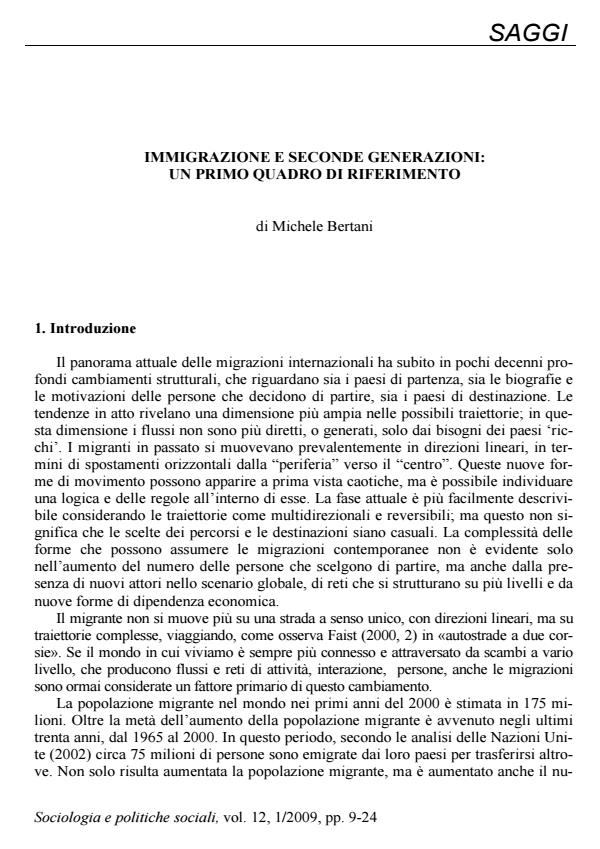Immigrazione e seconde generazioni: un primo quadro di riferimento
Journal title SOCIOLOGIA E POLITICHE SOCIALI
Author/s Michele Bertani
Publishing Year 2009 Issue 2009/1
Language Italian Pages 16 P. 9-24 File size 429 KB
DOI 10.3280/SP2009-001002
DOI is like a bar code for intellectual property: to have more infomation
click here
Below, you can see the article first page
If you want to buy this article in PDF format, you can do it, following the instructions to buy download credits

FrancoAngeli is member of Publishers International Linking Association, Inc (PILA), a not-for-profit association which run the CrossRef service enabling links to and from online scholarly content.
Immigrants and the second generations: a preliminary introduction - The article analyzes contemporary migration processes, by focusing on the so-called ‘second generation’ in Europe and Italy. After a brief description of the different meanings attached to this definition, the article highlights some of the peculiar aspects of the Italian context and analyzes them. Italy has experienced immigration only recently in comparison to other European countries. In addition, in this country immigration is often discussed by politicians and the media as a process related only with the labour market. This makes it interesting to define some preliminary indicators and trends in relation to the presence of migrants’ children in Italy. Through the analysis of statistical data and academic research, this article studies migration projects through the perspective of the ‘second generation’, to show this can provide an appropriate lens to understand migration trajectories in their full complexity. Additionally, this article encourages researchers to consider migration from this perspective, as it will be part of a long-term process which may be viewed, from an analytical perspective, as a trajectory, or rather as a multiplicity of potential trajectories. Keywords: Immigration, Second Generation, Immigration in Italy, Multiculturalism, Education.
- Migranti, religione ed economie locali: un'introduzione Donatella Greco, in MONDI MIGRANTI 1/2019 pp.101
DOI: 10.3280/MM2019-001007
Michele Bertani, Immigrazione e seconde generazioni: un primo quadro di riferimento in "SOCIOLOGIA E POLITICHE SOCIALI" 1/2009, pp 9-24, DOI: 10.3280/SP2009-001002